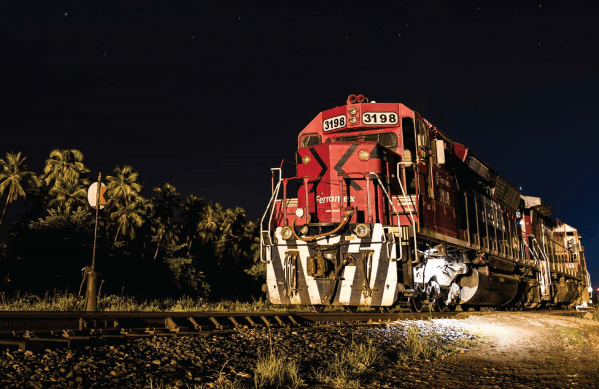The price of diesel increased 9.0% year-on-year in Mexico during the first quarter of 2021 and will continue to grow in the short term, projected GMéxico Transportes (GMXT).
Until 2016, the Ministry of Finance and Public Credit (SHCP) set the price of gasoline below the cost of production and import, so the federal government subsidized the real cost of energy.
But the SHCP decided to phase out this subsidy in 2017, starting with an increase to the maximum retail price.

In the period from January 1 to June 30, 2021, the price of diesel increased 9.0% compared to the same period in 2020.
The SHCP is releasing the price of gasoline at market value, so in 2021 and later years its price will not have subsidies.
“The increase in certain macroeconomic variables, as well as the fact that 60% of gasoline is imported and the decrease in the supply of fuels due to the reduction in the production of refineries in the country, suggest that the price diesel will continue to grow in the short term,» said GMXT.
Diesel is the main input for Ferromex and Ferrosur (subsidiaries of GMXT), so a rise in its price will cause an increase in operating costs that its customers will see reflected in the collection of the fuel surcharge discount.
In the medium term, it is expected that the opening of the energy market will have an impact on a decrease in the logistics cost of moving diesel, resulting in a decrease in the final price.
GMXT
Through its subsidiaries, the company is mainly dedicated to providing freight, multimodal and auxiliary rail services, as well as any activity that directly supports and is related to said object.
GMXT has the following indirect subsidiaries:
Ferromex
The company is the largest railway operator in Mexico, in terms of both coverage by number of kilometers and the number of cars used in the provision of its services, and mainly provides general cargo and intermodal rail services, as well as other services. auxiliary, and that include passenger transport, intraterminal towing and automotive terminal service, among others.
Likewise, Ferromex has the largest coverage of the Mexican railway system with 7,120.0 km of main roads and 1,010.5 km of branches that cover around 71% of the country’s geographic area and almost 80% of its industrial and commercial area.
The company operates the largest railway fleet in the country with 563 locomotives and 17,533 cars of different types.

Ferrosur
The company has the concessions to operate the Vía Troncal del Sureste and the Vía Corta Oaxaca-Sur, which together are equivalent to 1,823 km of tracks, as well as a partial transfer of rights to use, take advantage of and exploit the specialized terminal of ferro-ships in Coatzacoalcos, Veracruz.
In addition, Ferrosur operates 174 locomotives and 4,751 cars of different types.
Florida East Coast Railway (FEC)
This company offers rail services along the east coast of Florida and is the service provider to the ports of South Florida: Miami, Everglades and Palm Beach.
FEC offers services along approximately 565 km of its own railways, with connections to CSX and Norfolk Southern in Jacksonville, Florida.
For this, FEC has 69 locomotives, 7,557 cars of different types, 267 tractors and 1,478 trailers.
Texas Pacifico Transportation, LTD (TXPF)
The main activity of this company is related to the provision of rail services on a 616 km railroad between Presidio and San Angelo Junction in the state of Texas.
The company also maintains exchanges with Union Pacific in Alpine and with BNSF Railway and Fort Worth and Western Railroad in San Angelo Junction.
TXPF has 4 locomotives. Intermodal México (IMEX) provides complementary services to rail operations, such as intermodal services, Cross Dock, transshipment services, pre-trip, rail car maintenance and switching services; It has 10 terminals, 1,299 chassis and 30 cranes.
![]()

